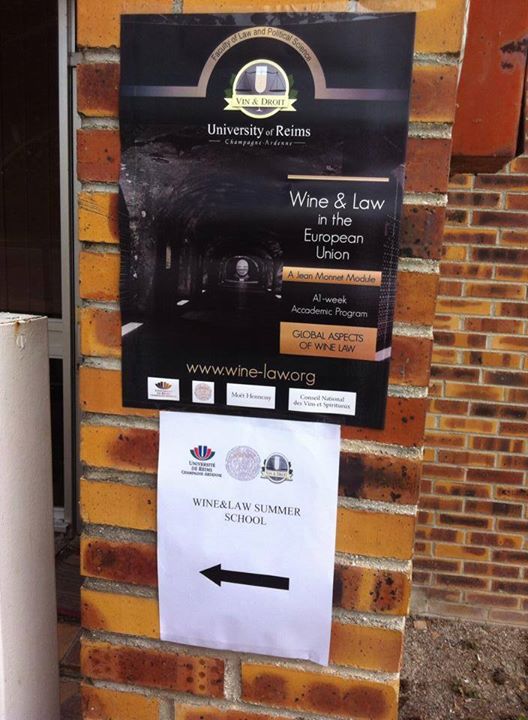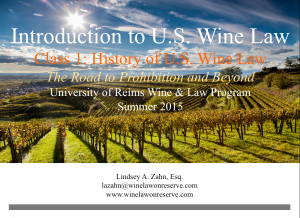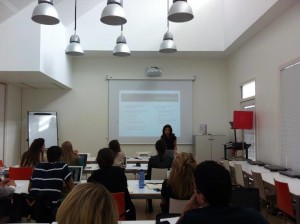 This summer, I had the absolute honor of being invited to attend the University of Reims’ Wine & Law Program in Champagne, France as a faculty member. I attended this same program several years ago when I was still a student in law school and had an incredible experience, one that pushed me to pursue beverage law as my career. The Program was one of the highlights of my law school studies, and the chance to participate as a faculty member has certainly been one of the highlights of my career as an attorney.
This summer, I had the absolute honor of being invited to attend the University of Reims’ Wine & Law Program in Champagne, France as a faculty member. I attended this same program several years ago when I was still a student in law school and had an incredible experience, one that pushed me to pursue beverage law as my career. The Program was one of the highlights of my law school studies, and the chance to participate as a faculty member has certainly been one of the highlights of my career as an attorney.
The University of Reims’ Wine & Law Program is directed by Professor Theodore Georgopoulos and consists of a full-year program (Master’s Degree) along with a summer program. The first summer school program was held during the summer of 2010 and, each year, the Program has a different session title or focus. The Program takes place in Reims, in the heart of the Champagne region of France, making it an ideal location for students looking to learn more about Champagne. While I cannot speak about the full-year program from personal experience, the summer program is a great mix of academia and educational extracurricular activities. 
This year, the Program focused on Wine Law and Wine Marketing and explored this topic in the context of EU, Australian, and U.S. law. Courses examined concepts like the regulation of alcohol advertisements, health limits on the promotion of wine, ethics in wine marketing, and geographical indications. Faculty included Professor Theodore Georgopoulos, Professor Vicki Waye, Professor Steve Charters, Professor Andrew Plantinga, and myself.
Professor Georgopoulos explored the exhilarating topic of EU wine law, particularly with respect to geographical indications and interesting developments in the EU’s wine and vine sector; Professor Waye spoke about the challenges of wine in Australia’s regulatory environment in the context of marketing, geographical indications, health, and advertisements and labeling. Professor Plantinga conducted a thought-provoking discussion entitled, What is the Value of Terroir? and examined what terroir means to consumers, the marketplace, and to industry members. Professor Charters lead a wine tasting in tandem with a lecture on wine history and wine economics. Finally, my own course consisted of an analysis of the federal regulatory landscape of wine in the U.S., with an overview on the history of wine regulation, the TTB, labeling and advertising, direct shipping, social media, and tied house. It was an extremely eventful week, and one I look back on fondly.
members. Professor Charters lead a wine tasting in tandem with a lecture on wine history and wine economics. Finally, my own course consisted of an analysis of the federal regulatory landscape of wine in the U.S., with an overview on the history of wine regulation, the TTB, labeling and advertising, direct shipping, social media, and tied house. It was an extremely eventful week, and one I look back on fondly.
Of course, a week of studies is not complete without several visits to the surrounding lands of Champagne. This year, the Program included visits to the maison Mercier in Épernay, the cooperative La Goutte d’Or in Vertus, the Comité Interprofessionnel du vin de Champagne, the Cathédrale Notre-Dame de Reims, and a visit to the caves of Veuve Clicquot Reims.
Once again, the Wine & Law Program was a wonderful experience for me. I sincerely hope this is only the beginning of my academic career in wine law, as the chance to teach a course was truly inspiring.
My sincere thanks to the University of Reims and Professor Georgopoulos for this incredible opportunity.
Photographs property of the University of Reims Wine & Law Program.